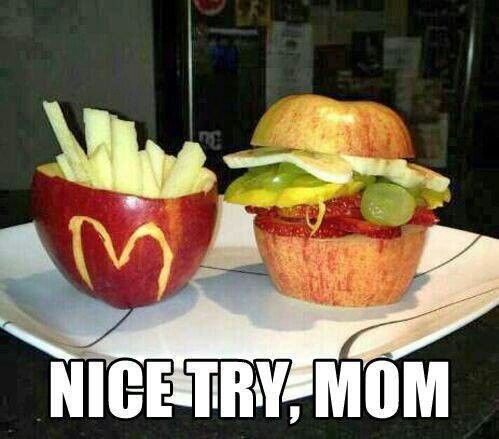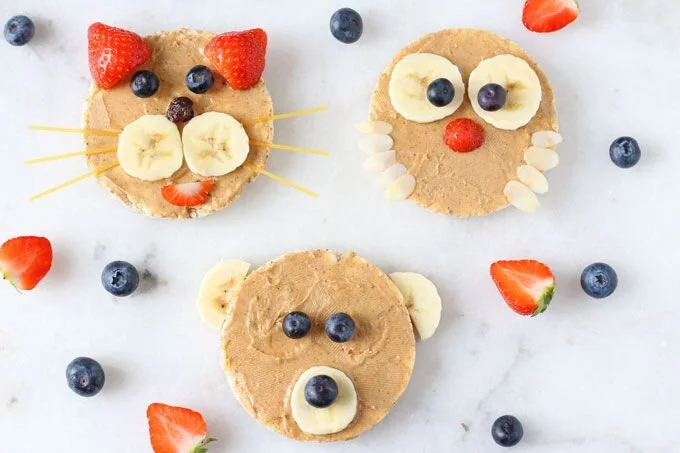Does food really impact the brain and emotions?
What if you could change the way the brain works just by changing the food you feed your kiddos?
You know what’s crazy...you CAN actually do that. Not only that, but it can have a significant impact on their behavior, too!
There are SO many tools for emotional regulation, but today, we’re going to focus on food. "Eat for your heart health" is a common phrase we've all heard over and over again. And you should. However, it's equally essential to your mental well-being.
Nutrition is a significant contributor to how our brains operate. I know firsthand because I have completely altered my diet to elevate my moods, to calm down when I am anxious, and to reverse the impact of chronic or traumatic stress exposure. Psst, I am not talking about stress-eating!
Food is trickier with kids as some of them may be picky eaters, while others have to be stopped from stuffing their little bodies with “junk.” But, it’s worth pausing and considering what’s going into their bellies and how it impacts their functioning.
Your kiddo's diet has a massive impact on how they feel today, tomorrow, and in the future. Poor nutrition is associated with anxiety and depression, while wholesome diets show decreased anxiety incidences. Makes sense because with processed or high sugar foods, your blood sugar is raising and dropping really fast, so your moods don’t stay stabilized.
The right food helps us develop and release neurotransmitters and hormones that the body requires for emotional health. It also helps to coat our cells so they fire better...AKA so we can think more clearly. This not only helps with emotional regulation, but also improves focus, problem-solving, and learning ability.
That sounds all science-y, but it’s true! The right foods help us to stay calm and focused or react impulsively. Let’s dig a bit deeper.
Need help with behaviors?
➡
Let's chat!
➡
Need help with behaviors? ➡ Let's chat! ➡
Essential nutrients for kiddo’s emotional regulation
and brain health
Vitamin D
Have you found yourself happier and energized during sunny days? Well, I have and that’s because of the glorious fireball in the sky. Sunshine boosts Vitamin D levels in the body. You’ll see kiddos running around during sunny weather as their bodies have been naturally recharged. Vitamin D also helps with alertness.
When it’s cloudy, rainy, or during winter, you need to supplement Vitamin D levels through diet. You can get it from mushrooms, eggs, dairy, or fatty fish (salmon, tuna, trout).
Fiber
Has your kiddo ever suffered from an upset stomach? They are irritable and can't sleep well, making them constantly fatigued. If they are struggling, then that means YOU are struggling. Have no fear, gut bacteria is here!
Different types of fiber are responsible for your gut bacteria. The right balance is tied to your emotional health (LOTS of research on this one lately). Having plenty of vegetables and fruits is an excellent place to start (broccoli, chia seeds, bananas)...even better if they love avocados.
This was an area of focus for my diet change. It has made a huge difference in my energy, digestion, and feelings of peace and calm. Smoothies are a great place to hide fiber, too!
Calcium and Iron
Lack of calcium causes muscle aches, spasms, and cramps. For the record, any ache or pain causes the brain mild stress, detracting from learning, focusing, and regulating ability.
It also leads to extreme fatigue, lethargy, and an overall feeling of no energy. Think about how you respond when you’re tired. Now magnify that by 10 for kids with young emotional brains.
Because kids have a bunch of energy and they are always jumping up and down, they need more calcium than adults. Don’t take my word for it - pay close attention when you make big changes to diet and then record the outcomes and behaviors.
You can get calcium from dairy and yogurt. However, if they're lactose intolerant, foods like almonds, fresh broccoli, tofu, kale, and sesame seeds serve the same purpose. I know most kids aren’t big fans of tofu, but you can do some really cool and weird things with it, which might give it more appeal.
Low iron levels make your kiddo short-tempered, tired, and weepy. None of that sounds appealing to me. It happens in adults too, so check your own diet! You need to make sure you have adequate iron to balance your energy levels and help with your mental well-being.
This was another big shift for me. When I started to eat more vegetables, I found myself eating less meat, which meant lower B12 and iron. That left me cold and tired all the time - so much so, I literally struggled to get out of bed. I started a natural supplement with both, paid close attention to how I felt and discovered I was a whole new person with the right levels of vitamins and minerals.
You can get iron from red meat, liver, turkey, spinach, beans, pumpkin seeds, almonds, and broccoli. Dark chocolate also works (that’s my go-to).
Omega 3 fatty acids
Low levels of Omega 3 fatty acids affect the brain's dopamine levels. If you remember from past blog posts, that means less feelings of pleasure and happiness. In turn, this affects the central nervous system functions like mood, movement, attention, and motivation.
Some foods rich in Omega 3 include salmon, nuts, walnuts, soybeans, flax seeds, sardines, and eggs. Again, I go for smoothies with this one. Lots of spinach with flax or chia seeds, all the blueberries, and oat milk!
Proteins
Protein helps in the repairing of our bodies as we rest. Kids are very active, and they need a protein diet to build their cells and muscles. Proteins also help stabilize blood sugar, so moods don’t swing as much.
You can get protein from meat, cheese, dairy, beans, fish, poultry, eggs, and nuts.
Sugar
If you want to get rid of the highs and lows of the emotional roller coaster, minimize their sugar intake. Don't go cold turkey, but slowly cut down their daily sugar treats. Start by cutting out candy, sports drinks, cookies, and processed carbs and juices. There are so many things to replace them, from protein cookies to protein shakes, nuts, carrots, kiwis, water, you name it. They won't even miss the sugars if you make it a habit and lifestyle choice.
Snacks
Popcorn, carrots, raisins, rice cakes, energy bars, yogurt, mixed nuts, dried fruits, fresh fruit, and veggie sticks are all GREAT options. I know these probably don’t sound super appetizing, but what if you visually arranged or displayed them in such a way that kids couldn’t resist. Google “rice cakes for kids”, and you’ll see what I mean!
The biggest things to note are that kids typically don’t go for these healthier choices. How can you motivate them to be interested in these options? This might be by hiding them in their favorite foods or in a smoothie. You might even contact a farmer and pay a visit to the field. Even videos on food production can interest them. Give it time because this might be a big adjustment for kiddos. Their bodies and brains are going to need that time to regulate.
Do your best to avoid fresh produce from the grocery store as it’s littered with chemicals and pesticides. Though veggies might be beneficial to the brain and body, the positive impact will be canceled out by all the harm that comes from unnatural chemicals used to make them.
Work with what’s in season and on sale. Go to the farmers’ markets. Join a CSA (Community Supported Agriculture...likely the cheapest option) And go slow on the transition from processed foods to a healthy diet. Give them and yourself grace but know that the initial pain is worth the gains.
Let me know how it goes in the comments below!
If you find yourself stuck, reach out to us or check out our coaching options.
Happy food exploration, friends!
Questions? Need help? Reach out!
Email: hello@thebehaviorhub.com
Social media: @thebehaviorhub
Online school
Schedule a discovery call





